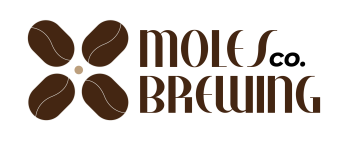
Rust is a powerful systems programming language that prioritizes safety, speed, and concurrency. However, its syntax and concepts can be daunting for beginners. As a Rust developer, one of the most important concepts you’ll have to work with are cheats for rust and enums. Structs enable you to define custom data types with their own properties, while enums allow you to create custom types with discrete values. In this article, we’ll provide a comprehensive Rust cheat sheet on structs and enums to help you master these concepts.
1. Structs in Rust
Structs in Rust can be thought of as simple containers for data. They allow you to define your own data types and store related data together in a single block of memory. To define a struct, you use the struct keyword followed by the name of the struct and a block of curly braces that contain the fields of the struct. For example, let’s define a struct for a rectangle:
“`
struct Rectangle {
width: u32,
height: u32,
}
let rect1 = Rectangle { width: 30, height: 50 };
“`
In this example, we define a Rectangle struct with two fields of type u32 (unsigned 32-bit integer). We can then create an instance of this struct by passing in values for its fields.
2. Enums in Rust
Enums in Rust are a type that can have a fixed number of values, each with its own name and data. They are useful when you need to define a custom type that can only take on a small number of values. To define an enum, you use the enum keyword followed by the name of the enum and a block of curly braces that contain the possible values. For example, let’s define an enum for the four primary colors:
“`
enum Color {
Red,
Blue,
Green,
Yellow,
}
let color1 = Color::Red;
“`
In this example, we define a Color enum with four possible values. We can then create an instance of this enum by specifying one of its values.
3. Struct Methods
Structs in Rust can also have methods, which are functions that operate on an instance of the struct. To define a method, you use the impl keyword followed by the name of the struct and the method definition. For example, let’s define a method for the Rectangle struct that calculates its area:
“`
struct Rectangle {
width: u32,
height: u32,
}
impl Rectangle {
fn area(&self) -> u32 {
self.width * self.height
}
}
let rect1 = Rectangle { width: 30, height: 50 };
println!(“The area of the rectangle is {}”, rect1.area());
“`
In this example, we define a Rectangle struct with two fields of type u32. We then define an area method for this struct using the impl keyword. The method takes a reference to the struct as its parameter and returns the area of the rectangle. We can then call this method on an instance of the Rectangle struct.
4. Enum Methods
Enums in Rust can also have methods, which are functions that operate on an instance of the enum. To define an enum method, you use the impl keyword followed by the name of the enum and the method definition. For example, let’s define a method for the Color enum that returns a String representation of its value:
“`
enum Color {
Red,
Blue,
Green,
Yellow,
}
impl Color {
fn to_string(&self) -> String {
match self {
Color::Red => String::from(“Red”),
Color::Blue => String::from(“Blue”),
Color::Green => String::from(“Green”),
Color::Yellow => String::from(“Yellow”),
}
}
}
let color1 = Color::Blue;
println!(“The color is {}”, color1.to_string());
“`
In this example, we define a Color enum with four possible values. We then define a to_string method for this enum using the impl keyword. The method takes a reference to the enum as its parameter and returns a String representation of its value. We can then call this method on an instance of the Color enum.
In this article, we provided a comprehensive Rust cheat sheet on structs and enums. We covered the basics of how to define and use structs and enums, as well as how to define methods for them. By mastering these concepts, you’ll be able to create custom data types and values that can make your Rust programs more efficient and expressive. Remember to practice using these concepts in your own code to gain proficiency and familiarity with Rust. Happy coding!
